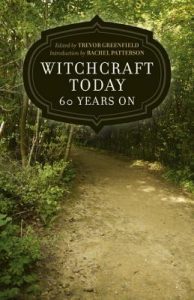A question arises frequently on social media regarding who is eligible to become a Dianic priestess. I wrote a longish essay on Dianic Witchcraft in Witchcraft Today: 60 years on. Here is a short answer to that question.

In the feminist Dianic Tradition founded by Z Budapest, who belongs in a particular coven/ritual is the prerogative of the Dianic coven and its High Priestess. That used to be the way of all Witchcraft traditions, until 1970s feminism threatened male domination. The Dianic Tradition as a whole is for all women (defined by biology, not feelings or sex stereotypes). Some covens are lesbian only. If that’s what the coven wants, we’re fine with that; we respect women’s boundaries. Sometimes an odd Dianic ritual will include men or transwomen, though I doubt any coven from Z’s line would initiate someone who wasn’t born-female. (Strange term that, but trans activists have muddied the language so that these convoluted terms have become necessary.) Dianics from Z’s line who have found themselves more inclusive of trans women have broken off from the tradition and given themselves new names (with our blessing).
There are some who have formed their own “Dianic” traditions which are completely in line with transgender ideology regarding who prescribes (those born with a penis) and who obeys (now known, in the parlance of gender ideology, as uterites, menstruators, vagina havers, people with a cervix). The practitioners of these new traditions deliberately try to confuse outsiders, to the point of naming their covens after older Dianic covens. The problem here is the deliberate attempt to sow confusion, not the deities or practices of the new groups per se. Being a priestess in the Dianic Tradition is not necessarily the same as being a worshipper of the goddess Diana. Veneration of Diana, and her Greek counterpart Artemis, goes back a long long way, and she has always had males among her acolytes. None of us own our gods. Legend in the Greco-Roman canon cautions, however, that a man who crashes a women-only ritual may incur the wrath of the goddess.
I don’t know much about the McFarland Dianics. Their founder, Morgan McFarland, did not court attention beyond her close-knit community. The McFarland Dianics, as they came to be called, received widespread publicity as a foil to Z Budapest’s overtly feminist Dianic tradition. Patriarchy always needs “good” women to oppose the uppity women they frame as “bad,” and McFarland, being neither lesbian nor emphatically feminist, fit the bill. McFarland is now in the Summerland, and her tradition has undergone many changes, as we all have, but their unsought role of “good Dianics,” as opposed to the bad ones, remains their popular distinction. No doubt, if Z’s lineage were to fade away (extremely unlikely), the Pagan “community” would go after the McFarlands, creating invidious comparisons among those women.
[Comments for this post are closed. If you have further questions, please read the essay in Witchcraft Today.]
